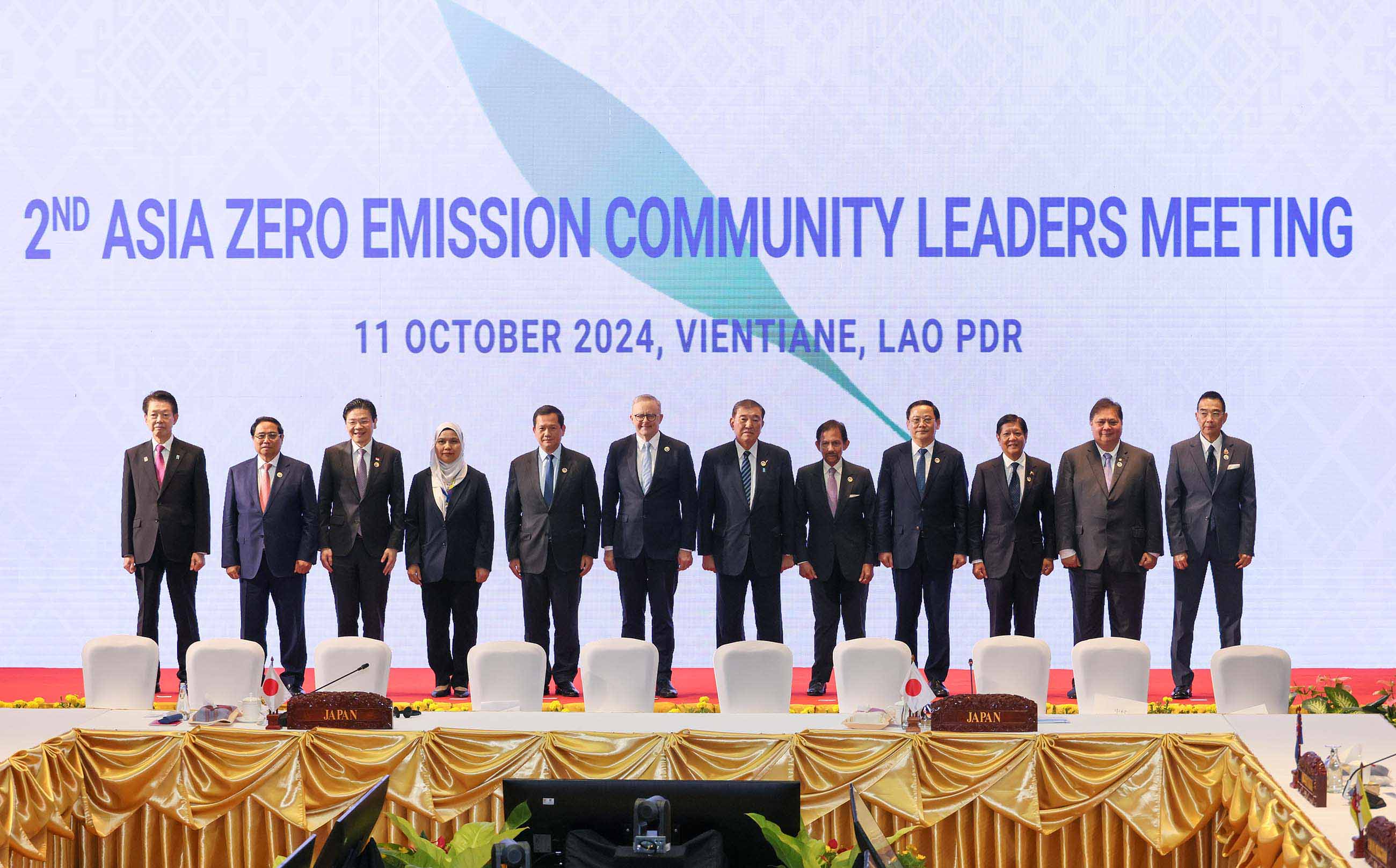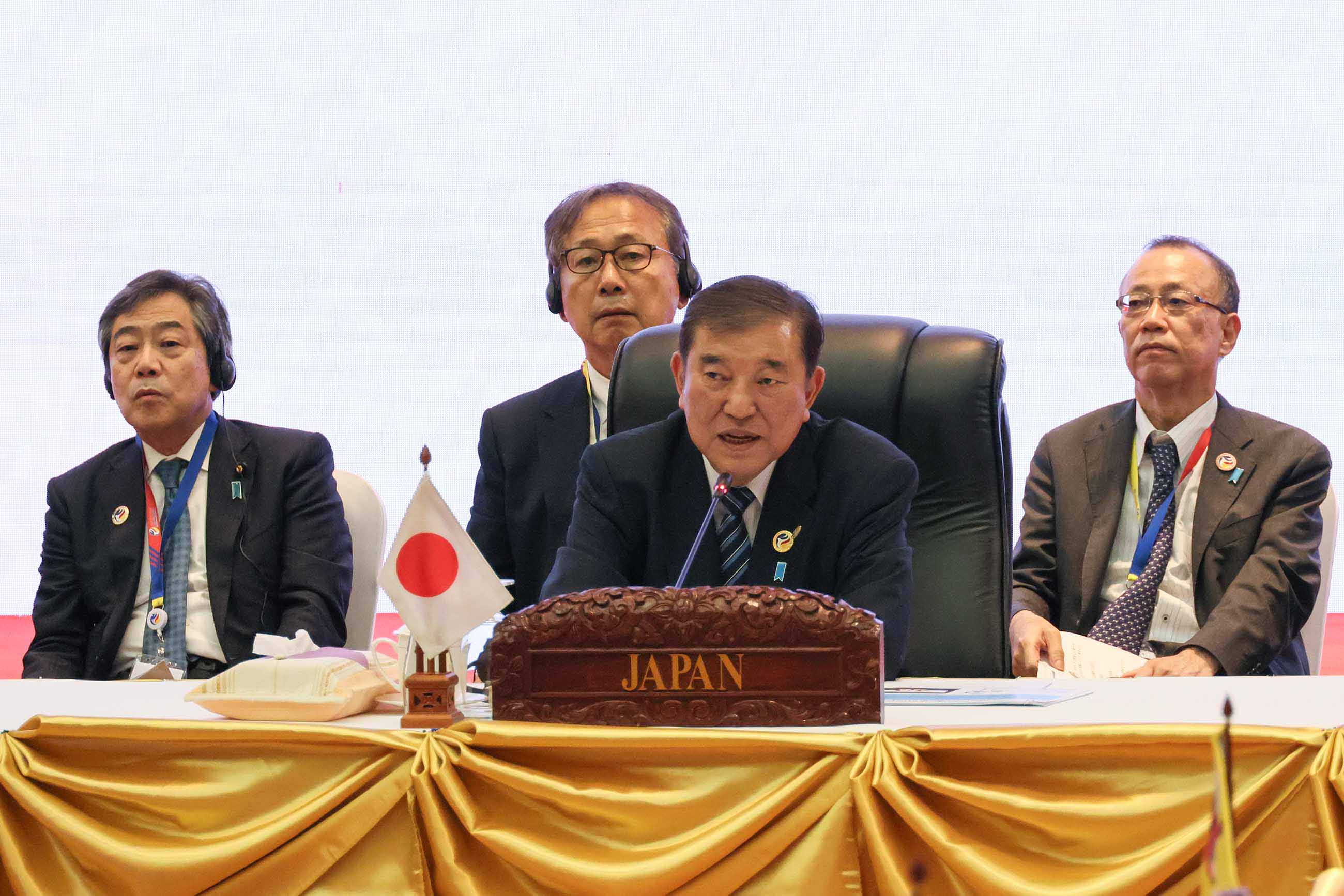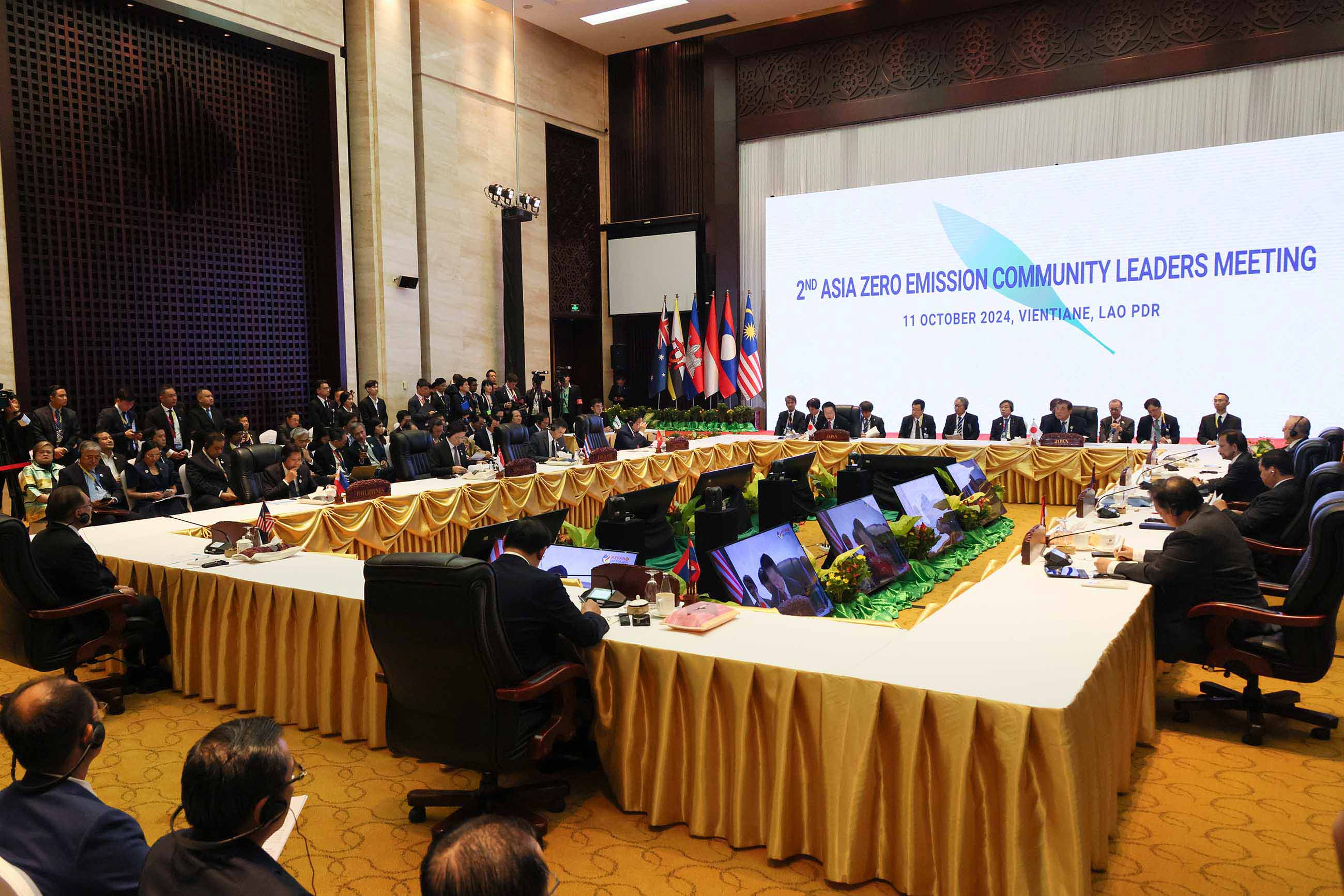The 2nd Asia Zero-Emission Community (AZEC) Leaders Meeting (Summary)
On 11 October 2024, Prime Minister Ishiba convened the 2nd Asia Zero-Emission Community (AZEC) Leaders Meeting, on the occasion of the ASEAN-related Summit Meetings. The summary of the meeting is as follows:
-
Prime Minister Ishiba emphasized it is indispensable to secure economic growth of Asia, as the world’s driver of growth, as well as to take urgent action to address climate change, which is an urgent challenge common to all humankind. To this end, the Prime Minister reaffirmed and highlighted the importance of the AZEC principles, which consist of pursuing net-zero emissions through various pathways, taking into account each country’s national circumstances such as industrial structure and energy mix, with a view to simultaneously achieving decarbonization, economic growth and energy security.
-
The leaders of the AZEC partner countries uniformly expressed their support for Japan's efforts in leading the AZEC platform. They also highlighted the importance of keeping the efforts to advance greenhouse gas (GHG) emission reductions throughout the region in accordance with the AZEC principles, by promoting renewable energy, zero-emission thermal power generation, carbon sequestration technologies and other mitigation measures as well as facilitating innovation and finance for energy transition.
-
The meeting was also attended by Mr. Muto, the Minister of Economy, Trade and Industry. He reported on the initiatives to promote decarbonization and emission reductions in sectors with high greenhouse gas (GHG) emissions and on the launch of the Asia Zero Emission Center, both of which were endorsed at the 2nd AZEC Ministerial Meeting in August this year.
-
At this meeting, the leaders of the AZEC partner countries adopted the AZEC Leaders’ Joint Statement and its Action Plan for Next Decade. The Joint Statement reaffirmed that the AZEC partner countries intend to contribute to the global decarbonization by accelerating implementation of their regional strategies to promote energy transition and decarbonization through various and practical pathways, according to each country’s circumstances. In addition, leaders concurred in the Action Plan for Next Decade, which consists of the following three pillars: (1) promoting “AZEC solutions” such as developing rules to promote activities that contribute to decarbonization in Asia; (2) launching initiatives for decarbonization and emission reductions in the sectors with high GHG emissions; and (3) promoting tangible projects.
-
Moreover, Prime Minister Ishiba was pleased to acknowledge that cooperation projects have been developed between Japan and AZEC partner countries, which include approximately 120 Memoranda of Understanding signed since the 1st AZEC Leaders Meeting in December last year. He also stated his intention to conduct studies to develop projects in Lao PDR through Japan’s Co-Creation for Common Agenda Initiative, to support Lao PDR to be a regional clean energy hub in the future, with a view to contributing to the decarbonization in the region.
(Note): AZEC partner countries (in alphabetical order):
Australia, Brunei Darussalam, Cambodia, Indonesia, Japan, Lao PDR, Malaysia, the Philippines, Singapore, Thailand, and Viet Nam


